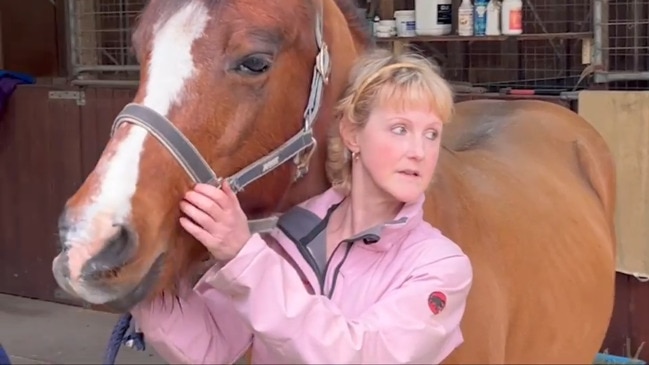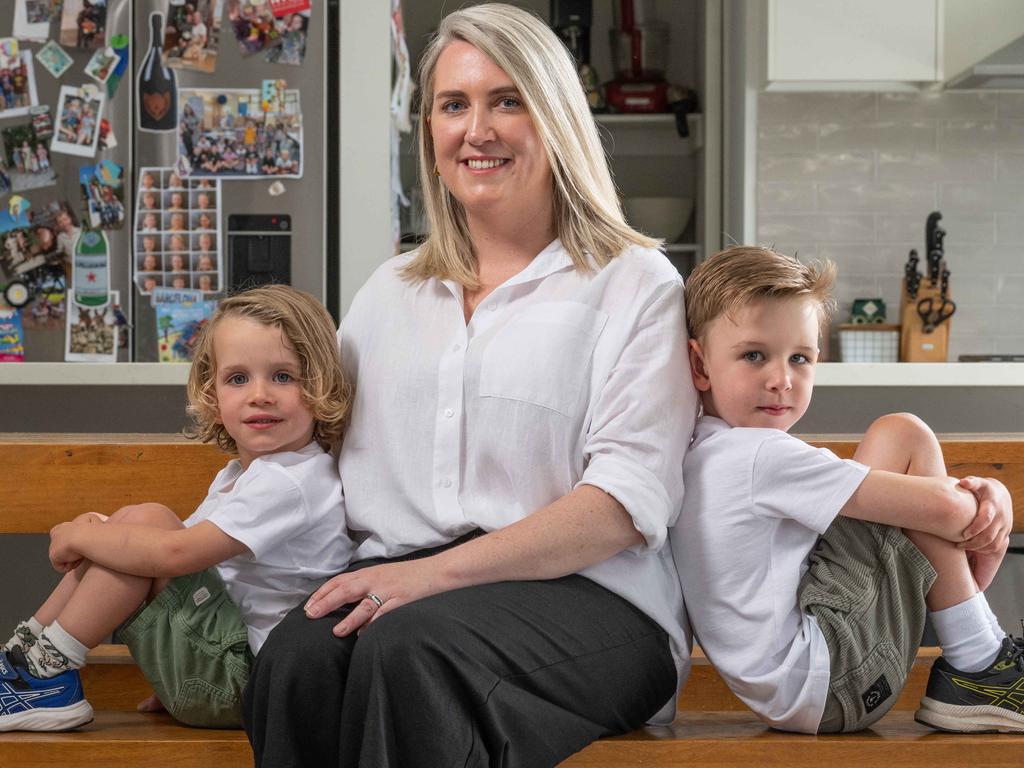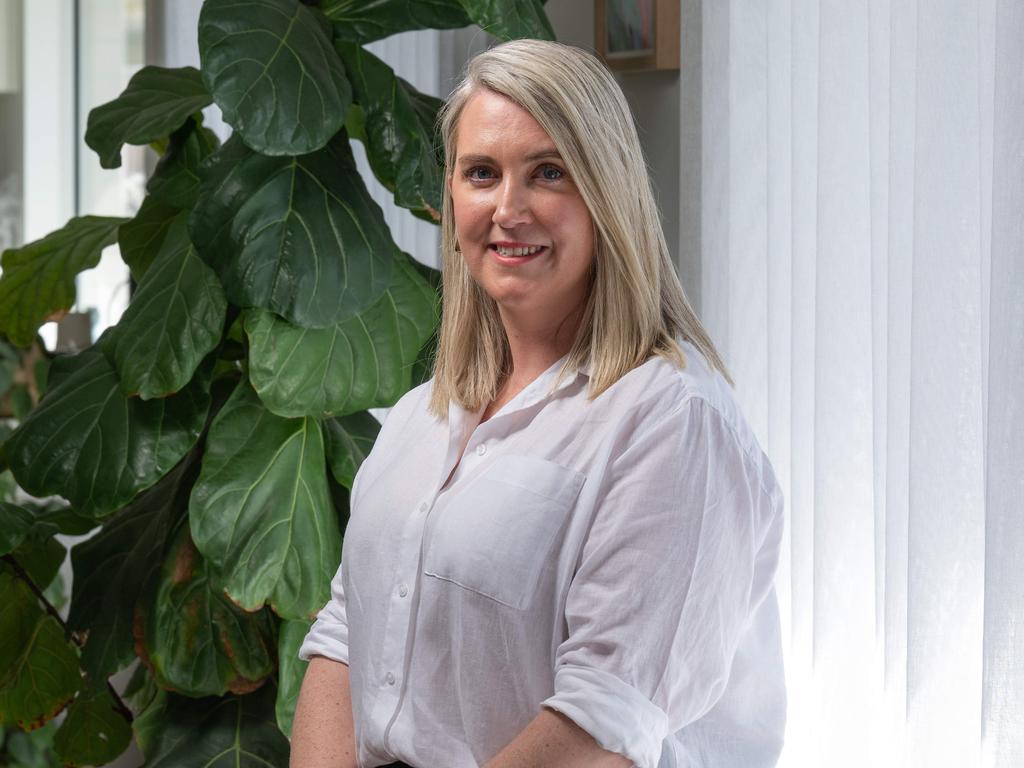Women head to Canberra for more access to preventative care
Many Australian women with a high risk of breast cancer have been forced to wait in limbo for access to risk-reducing surgery. Now they are taking their fight to Canberra.

A mum who has languished on a wait list for a lifesaving preventative mastectomy for almost two years says she is “relieved” to be finally getting the surgery next week, but disappointed she only received three weeks’ notice.
Lucy Range says while she was grateful to live in a country with access to a universal health insurance scheme, there needs to be better clarity for patients around where they are on wait lists and more emphasis on preventive treatments.
Ms Range, 39, had genetic testing after her father was found to carry the BRCA gene when his sister was treated for cancer. Ms Range’s test confirmed she had the BRCA gene mutation that puts her at a high risk of breast and ovarian cancer.
“I’m a nurse, so I understand how the health system works and I guess being on the wait list for so long I’ve always just kind of had it hanging over me with how I would make it work,” she said.

Mum to sons Sebastian, 6, and Conor, 3, Ms Range said she has also had to consider how the surgery would fit in with everyone’s life.
“I know I am lucky to have great family support, but it is difficult to plan for something like this when you are not being kept in the loop of where you are on a list and what the likely timeline is,” Ms Range said
She is not alone in her frustration with a health system accused of failing many people with inherited high risks of breast cancer.
On Thursday that fight will be taken to federal parliament by groups representing breast surgeons, researchers, health advocates and angry consumers.
The Australian Access to Breast Reconstruction Collaborative Group (AABRCG) and Breast Cancer Network Australia (BCNA) will join with patients sharing their experiences to highlight the need for urgent change.
AABRCG said risk reducing surgeries were not consistently classified as semi-urgent elective surgeries in public health services.
“People with inherited risks of breast cancer often wait more than 12 months for these surgeries,” AABRCG said in its position statement delivered to the federal health minister Mark Butler.
“They also face higher rates of emotional distress and intergenerational trauma associated with cancer risk, and the possibility of premature death.”
It says women who seek risk-reducing surgery through the private health system can face costs of up to $50,000, making it impossible for many and some are even raiding their super funds to pay.

Breast surgeon Melanie Walker is the president of BreastSurgANZ and AABRCG chair.
Dr Walker said they were heading to Canberra because women had told them about the delays and inconsistencies of categorisation.
“These were not isolated incidences and we felt it was important to raise awareness and advocate for national consistency,” she said.
Dr Walker said this had been hindered by guidelines that were non-legislated, outdated and inconsistently applied across states and territories.
She said it was also a sound investment. “These procedures not only spare individuals from enduring cancer treatments such as chemotherapy and radiation, but also reduce long-term healthcare costs.”

With the evolution of genetic testing and genomic medicine BCNA’s director of policy advocacy and support services Vicki Durston said Australia was on the cusp of real change.
“We want to ensure people who know their genetic risk of getting breast cancer, and have chosen to do something about it, can get timely access to risk reducing interventions in the public system and not be forced into mortgaging their home or needing to access their superannuation,” she said.
On Wednesday the Public Health Association of Australia also urged the federal government to invest in preventing people developing many chronic diseases, following the release of new figures showing the cost of treating them rose by $13b in a year.
The peak body was responding to the latest Australian Institute of Health and Welfare’s Health system spending on disease and injury report.
Chief executive officer Professor Terry Slevin said it reinforced the need to invest in prevention.
“We strongly encourage the Australian government to boost investment to 5 per cent of total health expenditure on prevention,” he said. “This will help ease pressures on our hospital systems in the future, but also means people will live healthier, and for longer.”
Originally published as Women head to Canberra for more access to preventative care




